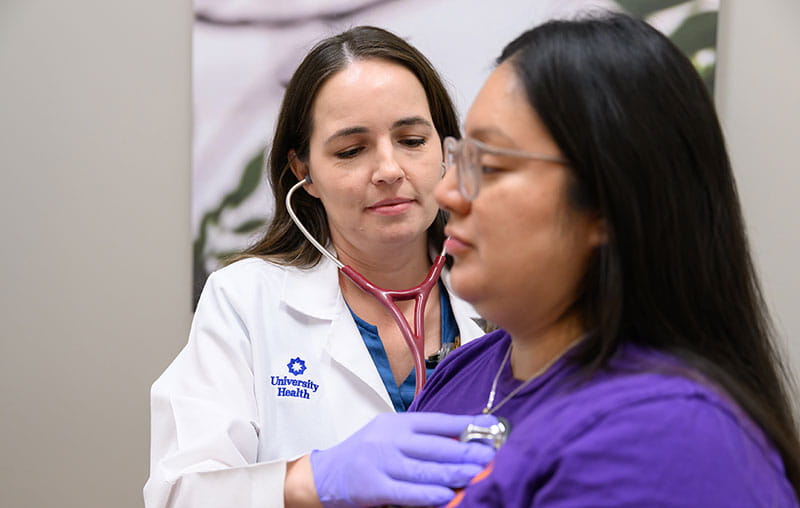Nearly 14,000 women are diagnosed with ovarian cancer in the U.S. each year. Registered nurse Suzanne Castle shares her story and how she felt when she was told she had stage 3B ovarian cancer.
“The prognosis was not good,” Castle said. “I have two daughters, and of course it’s been very difficult for my husband, too.”
Women don’t usually experience symptoms until the cancer has spread outside the ovaries. This is part of the reason why it is often caught later rather than earlier.
“Unfortunately, about 70-80% of ovarian cancers are not caught early,” said Dr. Georgia McCann, a gynecologist at University Health. “When they’re diagnosed, it’s at stage 3.”
Additionally, many signs of ovarian cancer are similar to common symptoms of menopause.
Signs of Ovarian Cancer
- Abdominal or pelvic pain
- Constipation
- Frequent urination
- Bloating or belly swelling
- Vaginal bleeding
- Pain during sex
Speak with your doctor if you have concerns or would like to get tested for ovarian cancer.
Risk Factors of Ovarian Cancer
- Women middle-aged or older
- Have a close family member who has had ovarian cancer
- Have an Eastern European or Ashkenazi Jewish background
- Have never given birth or have had trouble getting pregnant
- Have their first pregnancy after age 35
You can calculate your risk for ovarian cancer with our online assessment. “Don’t ignore (changes in your body). Your body will tell you if something’s wrong,” Castle said.
Diagnosing Ovarian Cancer
If you think you may be at risk for ovarian cancer, ask your doctor about diagnostic options. Your doctor will start by asking you questions about your medical and family histories, symptoms and risk factors.
Your doctor may order one or more of these tests to diagnose ovarian cancer:
- Pelvic exam
- Ultrasound
- CT scan
- Tumor marker test (CA-125 blood test)
- Biopsy
- Genetic testing
Cancer Care at University Health
Having a support system is crucial if you are diagnosed with cancer or are going through treatment. Never hesitate to ask friends and family for help.
University Health has a nationally recognized cancer care center, social workers and psychologists who are ready to help, as well.



